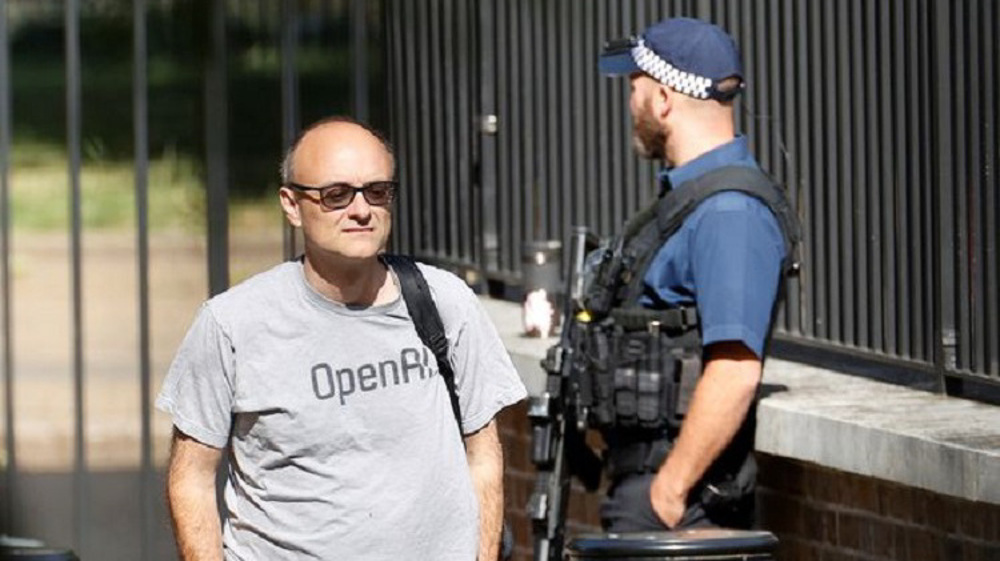Dominic Cummings in bid to shape British defense and security policy
As Press TV reported back in February, there are growing indications that Prime Minister Boris Johnson’s controversial strategist, Dominic Cummings, is set to play an important role in shaping the UK’s defense and security policy.
According to internal correspondence obtained by Australian newspapers The Sydney Morning Herald and The Age, the PM’s top adviser requested visits to five classified sites including facilities that specialize in defense intelligence.
Cummings has reportedly requested to visit the following sites: the Special Boat Service headquarters at Hamworthy barracks in Poole (Dorset); the Special Air Service headquarters in Hereford, the Defense Science and Technology Laboratory at Porton Down in Salisbury which specializes in the research of chemical weapons and pathogens, the Rapid Capabilities Office at Farnborough and the Defense Intelligence HQ at RAF Wyton in Cambridgeshire.
As part of his plan to decisively influence the new Strategic Defense and Security Review (SDSR), Cummings has reportedly already visited the headquarters of the civilian intelligence organizations MI5 and MI6 on at least two occasions.
The Brexit architect’s aggressive push to shape the new SDSR has brought him into conflict with defense secretary Ben Wallace.
Wallace has reportedly banned Ministry of Defense officials from talking to Number 10 Downing Street or Cummings about the top adviser’s itinerary for the planned trips to the five highly sensitive military sites.
Cummings’ growing power over defense and security policy was all too apparent at yesterday’s Defense Select Committee’s meeting in the House of Commons.
At the meeting the Chief of the Defense Staff, Sir Nick Carter, was harangued by the Tory MP Mark Francois about the poor state of defense spending and planning.
Francois, who is an arch-Brexiteer and is believed to be close to Cummings, made an implied threat to the professional head of the British armed forces that unless the military undertook urgent reforms, Cummings would come and “sort you out his own way and you won’t like it”.
The UK’s next SDSR was due to be published this summer but it is now not expected to be completed by early next year at the latest.
Iran: Israeli violations main obstacle to peace, security in Syria
Indian author pulls out of Berlinale over jury’s ‘unconscionable’ refusal to comment on Gaza
Bangladesh Nationalist Party secures victory in general election
VIDEO | British High Court rules against ban on Palestine Action Group
Tehran urges ‘serious’ revision in EU ‘unconstructive’ approaches
Hamas slams Israeli settlers’ ‘criminal aggression’ in West Bank
VIDEO | Press TV's news headlines
VIDEO | Iran launches 'Holy Qur'an Does Not Burn' campaign to restore mosques damaged in unrest











 This makes it easy to access the Press TV website
This makes it easy to access the Press TV website